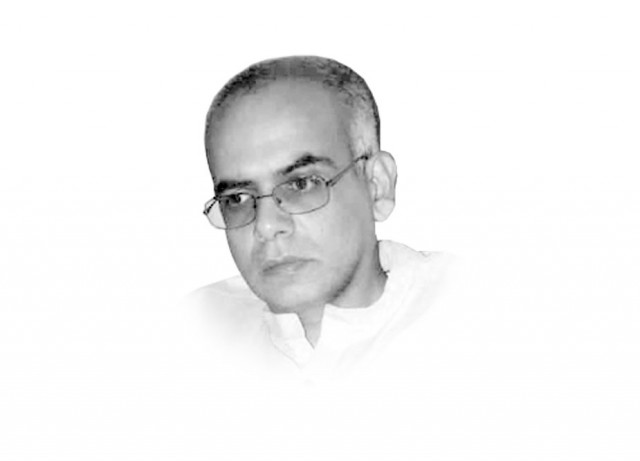The PTI’s recipe for the economy
The governance and institutional components of the PTI’s Vision immediately bring some questions to mind.

The governance and institutional components of the PTI’s Vision immediately bring some questions to mind. Its governance component aims to devolve power down to the grassroots level. Given the devolutionary experience under General (retd) Pervez Musharraf and its subsequent dismantlement by democratic forces, makes one wonder which local government model the PTI wants to implement.
Similarly, while the PTI drew attention to loss-making state-owned entities, the specific steps which it thinks will prevent privatisation disasters like that of the PTCL or the Pakistan Steel Mills controversy, need further elaboration.
Expenditure reforms to reduce the number of federal ministries, limit perks enjoyed by parliamentarians, civil and military bureaucrats would be laudable steps. It would be great if the PTI were to also consider abolishing the practice of granting prime agricultural land to retired military officials (a practice introduced by the British to secure loyalties and induce recruitments).
Increasing funding for education would also be welcomed. Presuming that the PTI would be able to generate the required funds, let us instead consider some conceptual issues. The PTI proposal of implementing one-education system for the entire nation continues to be puzzling. What will this system exactly be? Who will set the curriculum, administer exams, and what will be the medium of instruction?
The PTI Vision also endorsed the need for a voucher system to fund students to go to private schools to fill gaps where government schools are not enough. Seeing the PTI endorse such a scheme seemed a bit jarring after having seen the “Insaf for our children: a radical education policy” paper prepared by the PTI research wing earlier this year, which criticises the existing Western education model for propagating a worldview centred on the ascendancy of Western civilisation and claimed to draw inspiration from Ibn Khaldun’s notion of education. But then we saw the PTI endorse a voucher scheme originated by the champion of liberalism and libertarianism, Milton Friedman.
What the PTI will do about madrassas also remains a mystery. It seems unlikely that they will be ready to embrace the PTI’s educational system. Agricultural reforms proposed by the PTI also merit more consideration. The PTI spokesperson for food and agriculture recently used social media to highlight key features of what is apparently a 1,100-page document. The summary of proposed reforms highlights the need for providing small farmers financial support for required agricultural inputs, through taxing those owning more than 100 acres of land. If the PTI can pull this off, it would be a major accomplishment.
The PTI, in fact, aims to do more, by reforming agricultural research, education and extension organisations/departments. Given the years of institutional decay and increasing intrusion of the private sector and multinationals in this sector under WTO obligations and World Bank pressure, it will be a challenge to institute these reforms.
Instead of providing cash stipends to the rural poor, the PTI proposes offering at least partial employment through union councils for the youth to undertake plantation schemes or rural infrastructure improvement. This is a good idea. There was also mention of involving women and landless farmers in such projects. I did not, however, notice the PTI endorsing the need to ensure minimum wages for agricultural workers and greater rights for sharecroppers.
One hopes that the PTI agricultural development document deals with the above issues effectively if it gets the chance of being put into effect.
Published in The Express Tribune, September 3rd, 2012.















COMMENTS
Comments are moderated and generally will be posted if they are on-topic and not abusive.
For more information, please see our Comments FAQ